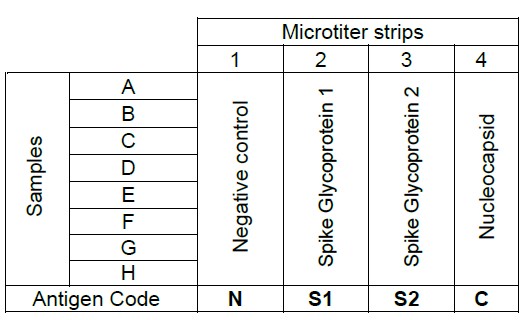
COVID-19 IgG and IgA ELISA Feature in Recent Study Analyzing Antibody Response to SARS-CoV-2 Exposure and Symptom Onset
A study has been published in Viruses titled Persisting Neutralizing Activity to SARS-CoV-2 over Months in Sera of COVID-19 Patients by B, Flehming et al. This study takes a look at the long term presences of SARS-CoV-2 RNA and IgG and IgA antibodies in three patients diagnosed with COVID-19 over a six month period. This research utilized the COVID-19 Nucleocapsid IgG Quantitative ELISA Assay Kit and the Anti-SARS-CoV-2 IgA (S1 RBD) ELISA Assay offered by Eagle Biosciences. The results of this study indicate that immunity to the virus may persist for a couple of months after onset of symptoms. These findings are consistent with some other studies done with larger cohorts of COVID-19 patients, however similar longitudinal studies should be done in the future to corroborate these findings.
Abstract
The relationship between the nasopharyngeal virus load, IgA and IgG antibodies to both the S1-RBD-protein and the N-protein, as well as the neutralizing activity (NAbs) against SARS-CoV-2 in the blood of moderately afflicted COVID-19 patients, needs further longitudinal investigation. Several new serological methods to examine these parameters were developed, validated and applied in three patients of a family which underwent an ambulatory course of COVID-19 for six months. The virus load had almost completely disappeared after about four weeks. Serum IgA levels to the S1-RBD-protein and, to a lesser extent, to the N-protein, peaked about three weeks after clinical disease onset but declined soon thereafter. IgG levels rose continuously, reaching a plateau at approximately six weeks, and stayed elevated over the observation period. Virus-neutralizing activity reached a peak about 4 weeks after disease onset but dropped slowly. The longitudinal associations of virus neutralization and the serological immune response suggest immunity in patients even after a mild clinical course of COVID-19.
Click here for the full text.
To view Eagle Biosciences’ extensive collection of SARS-CoV-2 Assays and other products click here.



